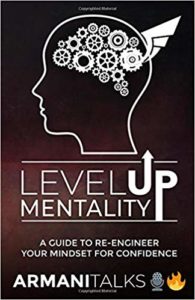How does the Brain & Mind Process Information?
Data vs information…
Are the 2 different or the same?
‘The 2 are different ways of saying the same thing!’
Nope.
Wrong.
The 2 are different.
You can have data without information.
But you cannot have information without data.
By understanding the differences, we’ll be able to understand how the mind & brain processes information.
It really comes down to understanding data vs information.
What’s the Difference Between Data & Information?
Data is unstructured.
Information is structured.
- Structured data = Information
Information can take up different roles in one’s life.
A book on starting a business may be perceived as information for one party.
Because this party is starting a business themselves.
While for another party…it’s data.
It doesn’t really register.
The core difference is that information has MEANING.
And that meaning allows someone to add structure to a narrative.
A narrative that will eventually influence behavior.
How Does the Brain Process Data & Information?
‘How does the brain process information?’
The brain is smart.
‘How smart?
The brain is capable of turning the data of the world into something more.
The world around us consists of light & electromagnetic waves.
And the human has a few components.
-Action organs.
-Knowledge organs.
Action organs allow us to interact with the environment.
Hands, legs, mouth, anus & genitals.
Knowledge organs allow us to consume from the environment.
Eyes, ears, mouth, nose, skin.
Knowledge organs take in data from the outside…
Then it’s all accumulated in the storehouse of the brain.
The brain gathers the data.
The Brain – Mind Connection
At this point, everything is just neural impulses.
How do the neural impulses turn into imagery?
The vivid imagery that allows you to read these words right now?
Well, in terms of Eastern philosophy, the mind is viewed as a body as well.
The mind is not just something that is a passive bystander.
The mind gets the data from the brain…
And that’s when we begin the data to information conversion process.
The mind is composed of:
Memory, ego, intellect & imagery.
All the data sent from the brain are transmitted to the mind.
And in the mind, one is able to gather meaning…
- Memory is the storehouse of past experiences.
- Ego is the storytelling identity. Who are you & who do you perceive yourself to be?
- Intellect is the capability to make true or false decisions.
- Imagery is all the data from the brain converted into the perception units of space, time & causation.
Overall, the blending of these 4 variables allows one to perceive information.
Not just data.
But meaning.
What is the Significance of Perception?
You ever heard someone saying, ‘life is one big story’?
Well, this can be viewed in a very philosophical way.
Or it can be viewed in a practical way.
Right now…
I want you to think about something.
You are currently reading what?
‘Your words.’
But what are words really?
And let’s go deeper….what are you reading the words on?
You’re reading the words on some sort of information technology.
Maybe a tablet, computer, phone.
There are electrical signals with certain rulesets that are creating pixels.
Only ONE screen.
But a bunch of different colored pixels to give the illusion that there are differences.
And from the differences, there are words.
Well, the phone without the mind means nothing.
It’s just a bunch of pixels colored in a way to represent words.
But when you add the variable of the mind…
Now you have the capability to extract meaning.
Aka information.
What is the predominant factor in terms of getting this information?
It’s the story.
The story determines which of the data will be converted into information at an experiential level.
Understanding the Nuances of Perception
To understand the importance of storytelling on the mind…
We have to realize something.
This is not to say that we should act self-centered and be like:
Only my story matters.
It’s just important to understand how information processing works.
It’s important to distinguish the capabilities of the brain from the capabilities of the mind.
The 2 speak different languages.
The brain has a lot of neural connections which signify meaning, yes.
But the mind is the body we cannot see.
It’s the world of experience.
And thru this first-hand world of experience, that’s when data is converted into information.
This is why there are 1,000,000s of books created.
But only a few are registered by the mind.
That’s because only a few are registering with past experiences, future desires & the present-day intellect.
All these variables of the mind create a holistic view of the story.
The holistic view of the narrative.
Why People See Things Differently
Humans have an objective reality as well as a subjective reality.
The mistake someone can make is applying objective rules to the subjective.
And subjective rules to the objective.
The nervous system which includes the brain, spine, sensory & motor nerves allows us to take in data.
Allows interacting with the environment.
But eventually, in terms of the mind….that’s when we experience the information.
This explains why 2 people can see the same exact thing.
But perceive 2 completely different things.
Mainly because their mind, intellect, ego & memory led to a different story.
A different story that extracted a different meaning.
That’s important in terms of understanding the difference between information and data.
Process Information at Rapid Rates
Hopefully, now you can understand the difference between data and information.
One is unstructured.
To extract meaning, there is a form of structuring that is required.
The structuring process can happen in a matter of seconds.
The beauty of learning comes when someone internalizes how does the brain & mind process information.
It’s a game of:
Learning the instruments of the body.
Learning the language of the mind.
Humans operate on stories.
In order to extract meaning, the mind is needed.
And in order for the mind to convert the data into information, a narrative is required.
Humans are complex creatures.
Many different functionalities.
At the core level of it all, it’s the narratives that are our operating system.
And it’s the narrative that governs the hidden nuances of our behavior.
For more practical communication insights, subscribe to my free daily newsletter.
– ArmaniTalks 





